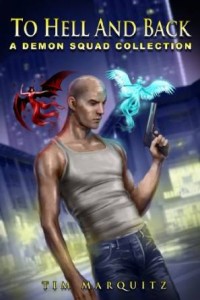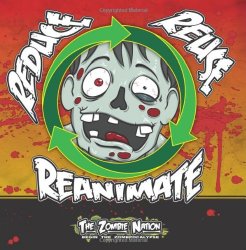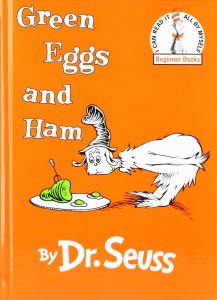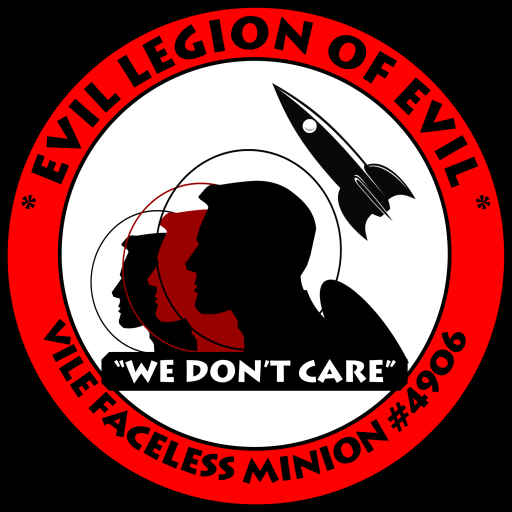aka “These are the times that try dogs’s souls: The summer sheep dog and the sunshine puppy will, in this crisis, shrink from the service of his country; but he that stands by it now, deserves the love and thanks of man and woman.”
The roundup today features Chauncey DeVega, John Ottinger III, Martin Wisse, Lou Antonelli, Paul, Cheryl Morgan, Simon Bucher-Jones, Tom Hanks, Rachel Neumeier, Laura “Tegan” Gjovaag, Scott Seldon, Alexandra Erin and other cryptic denizens of the internet. (Title credit goes out to File 770 contributing editors of the day Will Reichard and Jack Lint.)
Chauncey DeVega on We Are Respectable Negroes
….It would seem that there could be an overlap between the “Sad Puppies” racially resentful white folks (and their pathetic black and brown racial Stockholm syndrome allies) and the more formal and open White Right. The Whiteness of science fiction is united in the post civil rights era by White Supremacy gross, ugly, more polite, in some ways unapologetic, dishonestly “colorblind”, and in all of its other toxic ways.
As I shared on the RT network last Friday evening, Dylann Roof and other Right-wing domestic terrorists are weaponized by Fox News and the Right-wing hate media. Part of this training is not limited to explicit and formal political texts. Political lessons are also taught by many types of media such as music, film, art, video games, comic books, and other types of literature.
A quibble: Covington’s work sounds more like speculative fiction than it does “science fiction” (the widely known white supremacist tract The Turner Diaries fits this model as well). Most science fiction is by definition speculative in nature; speculative fiction is not necessarily science fiction. Words and concepts are important; meanings and definitions matter…..
John Ottinger III on World Magazine
“Notable Books” – June 29
Spotlight
Controversy erupted when one group of science fiction writers, who felt underrepresented by the awards committee, offered a competing list of nominees for the Hugo Awards. When their list won many of the five slots available in each award category, the science fiction establishment and major media noticed. The list writers—known oddly as the “Sad Puppies”—believe that books promoting politically correct causes and liberal identity politics have dominated the Hugos in recent years. Opponents say the “Puppies” are racist, misogynist, and homophobic conservatives undermining science fiction’s most prestigious award by inventing nonexistent persecution. Members of the World Science Fiction Convention will meet this summer to determine if nomination and voting rules need changing. Any changes would take effect in two years. —J.O.
Martin Wisse on Wis[s]e Words
“Fandom is more than just puppies barking” – June 28
This is not what fandom should be like, but unfortunately assholes are everywhere, even in sf fandom. But though they’re currently the loudest and most visible part of fandom, they’re not the whole of it. It’s only human to talk more about outrage than about all the everyday kindnesses that pass unnoticed, which is why British fandom has its Doc Weir award. Most people you meet in fandom, online or real life, are just normal, decent human beings. Which can be hard to remember when all you read about is a small part being incredibly nasty about having to share fandom with people who are not like them and don’t like Nutty Nuggets.
But there’s also the point that much of the sound and fury generated by those Puppies is a reaction to the fact that fandom is changing and getting more welcoming to people who may not just dislike Nutty Nuggets, but don’t like breakfast cereal at all. It’s a backlash against the idea that fandom can improve, grow more diverse, not remain the playground of a bunch of paranoid, spoiled, rightwing brats.
Lou Antonelli on This Way To Texas
“Back home” – June 29
A Facebook friend asked me today, “What do you get out of this much con-going? It’s not a financial benefit is it? I’m curious.”
I replied that I do it for self-promotion and networking. I have seen the benefits accumulate over the years of people getting to meet and know you a bit, to know that you’re a real person. I suppose it works for me because I’m very outgoing, and I’m also a much better public speaker than a writer.
I also feel this year I have a special obligation to get out there because of my Hugo nominations. I feel if I’m asking people to consider my virtues as a writer, they have the right to see me and buttonhole me.
Paul on BestScienceFictionBooks.com
“What’s Wrong With The Hugos, Part 3” – June 21
So, having first argued that science fiction is now too big for the Hugos, I then went on to argue that the governance of the award is too slow and too prone to complexify rather than simplify. At the end of that post I said that one of the major ways in which this unnecessary complexity shows itself is in the proliferation of categories. This brings us to:
Problem 3: The Award categories are inappropriate
I hold that too many of the award categories are irrelevant, or so poorly shaped that the voters do not know what they are actually voting for. And yet one of the most persistent and pernicious trends over the last few years has been to add further categories, which does nothing to make the whole thing simpler or clearer….
Okay, I’ve been rambling on for too long, but basically it comes down to this: most of the categories of the Hugo Awards are not fit for purpose. They are dependent on knowledge that the voter cannot have, or they make distinctions that are irrelevant to most voters, or they require comparison between items that cannot sensibly be compared. And these problems, or variations of them, extend into just about every one of the 16 categories there currently are in the Hugo Awards. It’s a systemic problem that ties in with the problems of governance and the problems of relevance that I have already highlighted.
I don’t know what the solution is, other than tearing the whole edifice down and rebuilding it from scratch on firmer grounds and on a simpler model. But I don’t think that is going to happen.
Simon Bucher-Jones on SBJ’s pantechnicon extravaganza
“A brief history of the Hugo awards – the file 770 compilation [as credited]”
1: the first award. 1197 AD
The award itself dates back to 1197 and Bishop Hugo de Rainault (brother of the then Sherrif of Nottingham) who it will be remembered offered ‘a mighty prize for the most puissant account of how yon addlepate knave Robin Earle yclept Loksley might best be set about his heels.’ The original silver arrow has now become over time the stylised ‘rocket robin hood’ shape of the current award….
My Summer reading. REDSHIRTS, then anything else by John Scalzi! Hanx. pic.twitter.com/jgCuSRZPqT
— Tom Hanks (@tomhanks) June 29, 2015
Rachel Neumeier
“One more note on the pro artist category” – June 29
Reid’s other covers look rather pulp style, which is not really my thing, but I do like this one.
And at least now I don’t have to think about putting No Award on the ballot. It’s a pity Reid didn’t put some of his works in the Hugo packet so they’d have been easier to find.
Laura “Tegan” Gjovaag on Bloggity-Blog-Blog-Blog
“Hugo Listening – Fancast” – June 29
[Reviews all five nominees.]
Of these choices, Tea and Jeopardy is definitely the best. It takes full advantage of the format, uses sound effects to improve the atmosphere and has whimsy that appeals to me. The interview was well-conducted, and the questions were perceptive and enlightening. It’s also short enough to listen to but not so long I start to think, just get on with it already! Next up, despite the length, is Galactic Suburbia, which is information-filled and fun. The trio clearly love what they are talking about and range far and wide on a variety of subjects while still pulling in the audience. I find the length problematic, but the diversity of subjects makes up for it. Adventures in SciFi Publishing is the third place winner, and the last to make the ballot for me. It’s a polished production, but went on just slightly too long on a single subject.
The next best is Dungeon Crawlers Radio, which is average but not great. I do wonder if there is a better example than the one in the sample, but due to the length, I can’t be bothered to listen and find out. At the bottom is the Sci Phi Show, which really didn’t take advantage of the audio format at all. The cheesy laughter sound effect detracted, rather than enhanced. If that was the best available, the podcast doesn’t deserve an award.
Scott Seldon on Seldon’s SF Blog
“Interstellar Is Just That” – June 29
…This film most certainly deserves the Hugo award this year. It is what the Hugo is all about. It is, unfortunately, on the Sad Puppies list. I’m quite sure it would have been nominated anyway. In other areas it has received many awards, beating out the other Hugo Nominees. And it is really quite funny that the puppies would nominate this film. They are so against stories with a message and if you don’t get the messages in this film you have to be brain dead. As against the puppy slates as I am, I am forced to concede that this is indeed the best SF film of the year and I must put it first when I vote. I just have to. From the emotional, enjoyment, box office response, and industry award perspectives this film comes out on top among those nominated. If you believe in the spirit of the Hugos, you won’t let the source of a good nominee that deserves to win cloud your judgement. Of course, not all will agree that this is the best offering, but from my perspective, I have no choice…..
Alexandra Erin on Blue Author Is About To Write
“The Goblin Emperor: Yes, it’s fantasy, and yes it’s a novel” – June 29
Anyway, in a year when many Hugo works were nominated whose merits are so dubious that even the people who nominated them aren’t discussing their merits, The Goblin Emperor is a novel whose merits have been rather sharply debated. It has been praised highly from a wide number of quarters, but there are some lines of criticism that have cropped up and been repeated even outside the quarters of the Puppy campaigns (though they are found most often and most vociferously within those quarters).
They are:
- It’s not really fantasy, so much as an alternate history with non-human races because there’s no magic or other speculative element.
- It’s not really a novel, because there is no plot/no conflict. This criticism is also phrased as “It’s more of a series of anecdotes than anything.”
The standard Puppy nonsense of “SJWS ARE SHOVING MESSAGES DOWN OUR THROATS AND VOTING FOR STORIES FOR AFFIRMATIVE ACTION REASONS” has certainly come up, too, of course, but it’s hardly worth engaging with them.
Now that I have read the book, I really have to wonder: did the people making those two criticisms of it do so? If they did, I don’t think they could have read it carefully. While the vision of elven and goblin societies in The Goblin Emperor are an example of intricate and engrossing worldbuilding, the magic-using classes of society appear to have been lifted straight out of classic D&D; e.g., there are clerics and there are wizards.
Yeah, I can see a very nice Hugo Awards in this room. @helsinkiin2017 pic.twitter.com/DpcZuurCEK
— Michael Lee (@michaellorg) June 29, 2015
Cheryl Morgan on Cheryl’s Mewsings
“Archipelacon – Day 4” – June 29
Lots of people were talking about wanting to come back to Finnish conventions again. We seem to have created a lot of goodwill for the Helsinki Worldcon bid. I am so proud of my Finnish and Swedish friends right now.
Tor & File770 insiders claim we pushed Wheaton off the unicorn. #SadPuppies
— finger chomper (@sadrbtpuppies) June 29, 2015
I'm legally changing my name to Noah Ward, in the hope I might win a Hugo or two this year. #sadpuppies
— Stoney Emshwiller (@StonyEmshwiller) June 29, 2015








